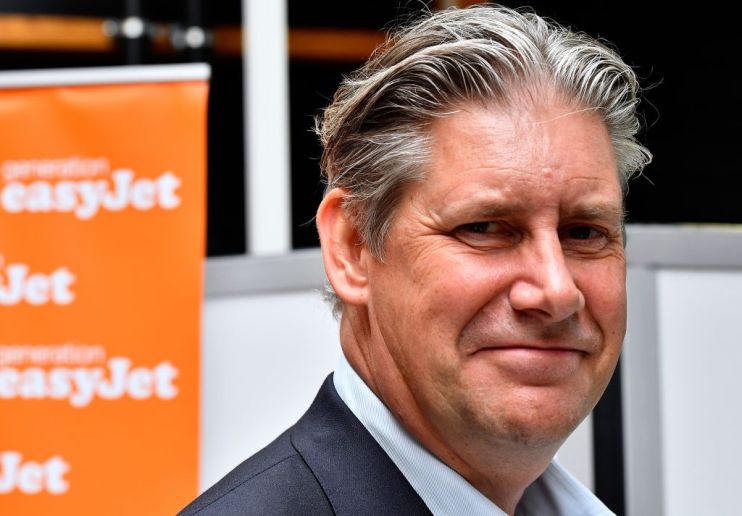Easyjet CEO says founder’s calls for his sacking are ‘a distraction’

Easyjet’s chief executive has said that calls for his removal from the airline’s founder Sir Stelios Haji-Ioannou are “a distraction” and “quite frankly unhelpful”.
Speaking to City A.M., Johan Lundgren said that his focus was “completely on managing this business through the worst crisis the aviation industry has ever seen.
Lundgren’s comments came after Haji-Ioannou, who owns 36 per cent of the budget carrier, called for both Lundgren and chairman John Barton to be sacked for their refusing to cancel a contract for 107 new aircraft with Airbus.
Sir Stelios has been waging a campaign against Easyjet’s board to cancel the contract for some weeks, saying the firm will run out of money if it did not do so.
His latest salvo came after Easyjet announced this morning that it had raised enough new cash to survive a nine-month grounding.
It has also agreed to defer the delivery of 24 planes from Airbus due to the coronavirus crisis, which has decimated demand.
Lundgren added: “I think we have proven over the seven week period that we have done very well to get access to liquidity and amend the Airbus contract so that it is better suited to lower demand”.
‘No one can say’ they will not need more support
Easyjet has raised £1.8bn-£1.9bn in extra cash to help it survive the shutdown.
However, Lundgren did not rule out the possibility of seeking further financing, including state aid, if the shutdown continued beyond current worst-case predictions:
“We will continue to look at all avenues and all options available as the situation evolves.
“We are not looking for a bespoke arrangement at this time, but if this goes on and on and on, a huge number of our competitors will be gone and no one can say they will not need more support from the government”.
Sign up to City A.M.’s Midday Update newsletter, delivered to your inbox every lunchtime
He also said that it was critical that governments across Europe ensured that when helping airlines financially they could ensure that a “level playing field” would still exist when restrictions end.
Some European governments have equity stakes in their national airlines, a situation which could “significantly distort competition”, Lundgren said:
“If you went in to this crisis in a strong position you should not come out of it weaker because others have gained competitive advantage”.
France, for example, has introduced tax deferrals and benefits for home-based carriers, a measure Lundgren called “highly unfair”.
The carrier is in discussions with the European Commission concerning such measures.
Easyjet “extremely well-placed” to compete
Many carriers expect there to be a price war when demand begins to pick up, but Lundgren was confident that Easyjet would be well placed to compete:
“If you look back on downturns, Easyjet has outperformed the competition because we have much more of a focus on value for money”.
Other airlines which are dependent on expensive business class seats could be far harder hit, he said.
Easyjet’s combination of affordable fares, high load factors and quick turnarounds would stand in good stead.
“The ones with the most efficient models will clearly have an advantage, and we’re extremely well-positioned to compete”.
Although it is early days, Lundgren added, winter bookings are well ahead of last year as people rebook their cancelled summer holidays.
The demand to travel is still there, he finished. “People want to travel, they want to fly. It is testament to our relationship with our customers”.